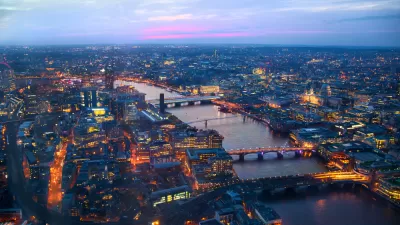National Geographic Traveler talks with urban theorist Richard Florida about the changing roles of cities, and the emerging centers of economic prosperity.
"National Geographic Explorer: Is the 21st century the century of the city?
Richard Florida: No doubt about that. In 2008, the world went urban-with more than half the population now living in urban centers. The world now turns on these great conglomerations of cities we called mega-regions, the Boston−New York−Washington corridor, the areas that stretch from Chicago to Detroit and Cleveland to Pittsburgh, Greater London, Greater Tokyo, the Brussels-Antwerp-Amsterdam corridor, and so on. These 40 mega-regions house less than 20 percent of the population but produce two-thirds of the Earth's economic output and nine in ten of our innovations. Cities are the key to all the grand challenges of the century. Economic prosperity comes from density. It comes from close interactions. It comes from people and firms clustering together to spur new innovation and to leverage each other's talents to create new technologies and new ways of doing business that will drive growth and raise living standards."
Florida also discusses globalization's impact on homogeneity in cities around the world, and how those cities can identify their own unique qualities.
FULL STORY: Cities are the Key

Alabama: Trump Terminates Settlements for Black Communities Harmed By Raw Sewage
Trump deemed the landmark civil rights agreement “illegal DEI and environmental justice policy.”

Study: Maui’s Plan to Convert Vacation Rentals to Long-Term Housing Could Cause Nearly $1 Billion Economic Loss
The plan would reduce visitor accommodation by 25% resulting in 1,900 jobs lost.

Why Should We Subsidize Public Transportation?
Many public transit agencies face financial stress due to rising costs, declining fare revenue, and declining subsidies. Transit advocates must provide a strong business case for increasing public transit funding.

Paris Bike Boom Leads to Steep Drop in Air Pollution
The French city’s air quality has improved dramatically in the past 20 years, coinciding with a growth in cycling.

Why Housing Costs More to Build in California Than in Texas
Hard costs like labor and materials combined with ‘soft’ costs such as permitting make building in the San Francisco Bay Area almost three times as costly as in Texas cities.

San Diego County Sees a Rise in Urban Coyotes
San Diego County experiences a rise in urban coyotes, as sightings become prevalent throughout its urban neighbourhoods and surrounding areas.
Urban Design for Planners 1: Software Tools
This six-course series explores essential urban design concepts using open source software and equips planners with the tools they need to participate fully in the urban design process.
Planning for Universal Design
Learn the tools for implementing Universal Design in planning regulations.
Smith Gee Studio
Alamo Area Metropolitan Planning Organization
City of Santa Clarita
Institute for Housing and Urban Development Studies (IHS)
City of Grandview
Harvard GSD Executive Education
Toledo-Lucas County Plan Commissions
Salt Lake City
NYU Wagner Graduate School of Public Service




























